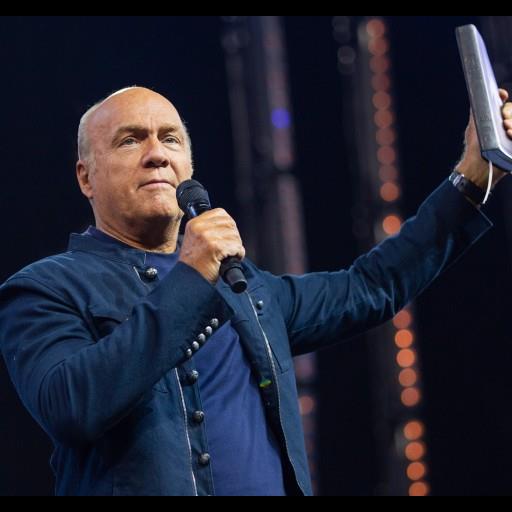The first recollection I have of going to church was with my grandparents. I was a little boy, and I didn’t like it at all. I thought it was boring. My grandmother kept shushing me, and I drew cartoons on the church bulletin as the preacher droned on.
Later, when I was in military school for a while, going to chapel was mandatory. I didn’t really enjoy that either.
I remember they would give us money to put in the offering: 10 cents. The reason I remember that is because one Sunday, I decided to keep the 10 cents. I spent it at the canteen instead. We had our own money, but with that dime, I had twice as much: a total of 20 cents to buy the grape licorice I always bought. Even so, I do remember feeling very guilty about stealing God’s money from Him.
Other than these experiences, I really didn’t have a lot to do with the church during my childhood. It was not something I was familiar with. But after I became a Christian at age 17, there was a very persistent guy on my high school campus who made himself my friend. He walked up and told me that he noticed I had become a Christian. Then he said that he wanted to take me to church. I said, “I really don’t want to go to church. That’s OK.”
But he wouldn’t take no for an answer. He was persistent in a friendly way. So I agreed to go to church with him. I still remember walking into Calvary Chapel in Costa Mesa, California. It was during the Jesus Movement, and the place was overflowing with young people. There was almost an electricity in the air. It stopped me cold, and I didn’t want to go in. There seemed to be too much happiness in there, too much smiling and hugging.
Being raised in a very dysfunctional home, I didn’t hear “I love you” a lot. We didn’t hug in our family. And I thought, I don’t want to be hugged at all. So I approached the scene cautiously.
When I saw the place was full, I was relieved, because I thought we wouldn’t have to stay. So I said to my new friend, “Well, there is no room in there.”
But sure enough, someone in the front row saw me, recognized me from school and waved us over. So we ended up sitting in the front row. What I didn’t realize at the time was that I had a front-row seat to a genuine revival.
Then Pastor Chuck Smith walked out—a middle-aged bald man. That is the last thing I wanted. I thought, He is like a teacher. He is like the principal. This is going to be so boring! But then, as he opened up the Bible and began speaking, it made sense to me. It was relevant to me. And my heart began to change.
I went from being uncomfortable in church to not being able to get enough of church. I went to every service possible and wanted to be a part of everything and learn as much as I could learn. Then, two years later, I found myself in the Southern California city of Riverside, planting a church myself.
However, I did not know I was planting a church at the time. I thought I was just teaching a Bible study for young people at a local Episcopal church. But it began to grow. And pretty soon, people were calling me “Pastor.” When they would address me as such, I would look around, thinking, Where? Oh, you mean me? I can’t be your pastor. I tried to find someone to take over the Bible study, but no one would. It was then I realized that God was calling me to be a pastor.
Fast-forward 40 years, and now I am the old bald guy. But I am as committed to the mission of the church as I was on that day I first discovered how wonderful church can be. And I believe that the hope for America is the church.
Some might be thinking, Now, Greg, wait. I thought you said the hope for America is a revival. Isn’t it really God? Yes, it is. The hope is God—working through His church.
What is revival? It is Christians getting back to what they should have always been in the first place. It is Christians coming back to life. Here is what God has to say to a nation that wants to be healed: “If my people, who are called by my name, will humble themselves and pray and seek my face and turn from their wicked ways, then I will hear from heaven, and I will forgive their sin and will heal their land” (2 Chronicles 7:14 NIV).
If we want to see our land healed, God says that it starts with His people. Christians need to live up to their name: Christ-followers. They need to be Christ-like. And if the church would be what it was meant to be, then it would change our country.
When Jesus walked this earth, He only started one organization, if you will, and that, of course, was the church. It was Jesus Himself who first used that word when He said, “I will build my church, and the gates of Hades will not overcome it” (Matthew 16:18). Jesus was saying, in essence, “This church is here to stay. Against all odds, it will prevail.”
The word church comes from the Greek word ecclesia. Ecclesia is made up of two other terms, “out from” and “called.” Put them together, and the meaning of ecclesia, or church” is “called out from.” Called out from what? Called out from this world, this culture. So in using the word church, Jesus was saying that His followers should be separate from this culture.
If individuals would be what they ought to be as followers of Christ, what difference would it make in the church? And if the church would be what it ought to be, what difference would it make in a city…in a state…in a nation?
The hope for America is God—working through His church.






